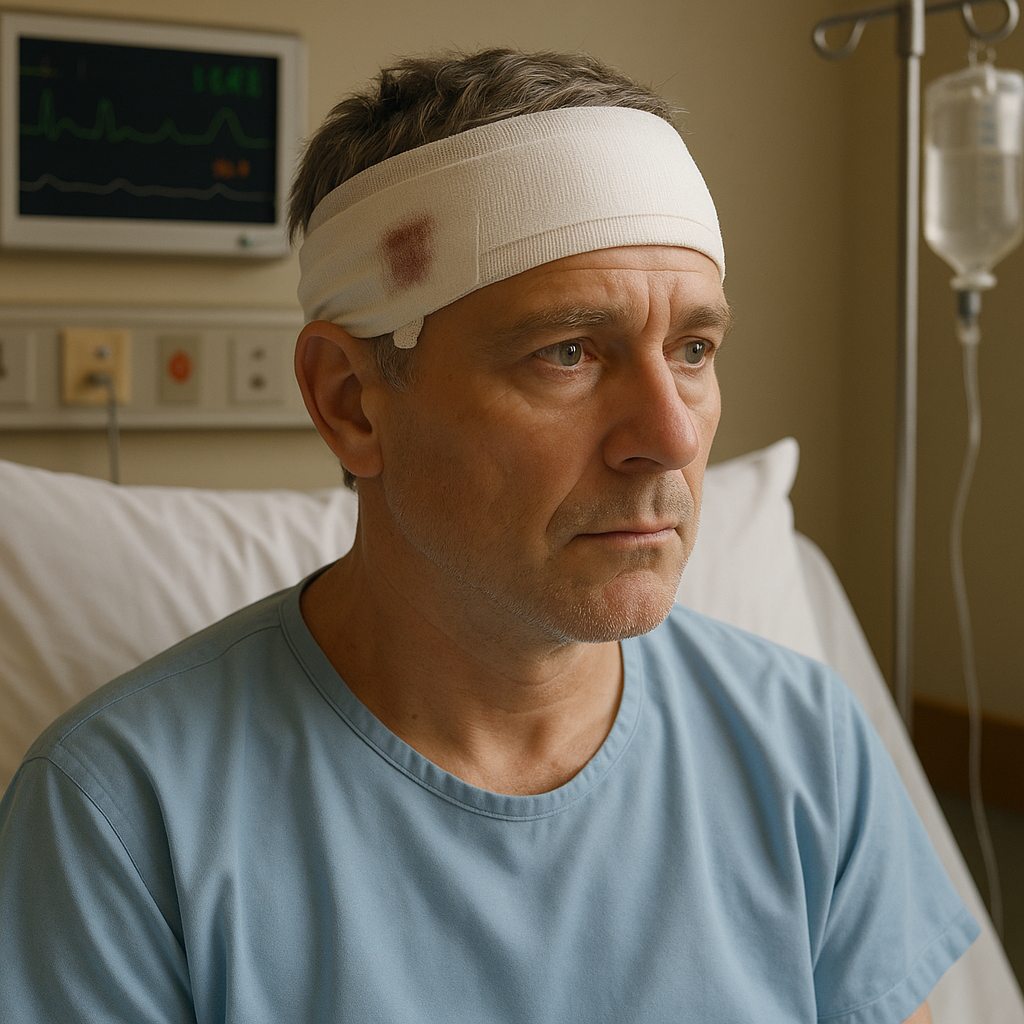Brain surgery is a life-changing event. For patients and families, it can bring a mix of fear, hope, and uncertainty. Whether the procedure is for a brain tumor, aneurysm, or spine-related condition, the recovery process is often full of questions.
As a leading neurosurgeon in Mumbai, Dr. Mazda K. Turel has guided hundreds of patients through this journey. In this blog, he shares 20 important things you can expect after brain surgery – so you and your loved ones feel prepared, reassured, and supported.
Immediate Recovery (First Hours to Days in Hospital)
1. Waking Up After Anesthesia
Patients usually wake up in the ICU or recovery ward. You may feel drowsy, confused, or disoriented at first. This is normal and usually improves within a few hours.
2. Head Bandages and Dressings
A bandage or dressing is placed over the surgical site. Swelling or mild fluid discharge may occur. Nurses will keep it clean and monitor healing.
3. ICU Monitoring
After most brain surgeries, patients spend 24–48 hours in the ICU. This ensures close monitoring of blood pressure, oxygen, and neurological responses.
4. Stitches, Staples, or Clips
Depending on the procedure, your neurosurgeon may use stitches or staples. These are removed after 7–14 days.
5. Headaches and Pain Relief
Headaches are very common after brain surgery. Your doctor will prescribe pain medication to manage discomfort.
Physical Changes in Early Recovery
6. Fatigue and Weakness
You may feel extremely tired for days or even weeks. The body needs extra energy to heal, and rest is essential.
7. Balance or Dizziness
Some patients experience unsteadiness or dizziness. Physiotherapy can help improve coordination and strength.
8. Appetite and Nausea
It is common to have nausea, especially from anesthesia or medications. Appetite usually returns within a few days.
9. Temporary Speech or Vision Issues
Depending on the surgery site, some patients may notice slurred speech, blurred vision, or difficulty finding words. These usually improve with therapy.
10. Risk of Seizures
Seizures may occur after certain brain surgeries. To prevent this, doctors often prescribe anti-seizure medications.
Emotional and Cognitive Changes
11. Mood Swings
The brain controls emotions. It’s natural to experience mood swings, irritability, or even depression. Support from family and professionals helps.
12. Memory Issues
Short-term memory problems are common. Simple reminders and patience from loved ones make recovery smoother.
13. Concentration Difficulties
Many patients struggle to focus during the first weeks. Mental exercises, rest, and routine help rebuild concentration.
14. Anxiety About Recovery
Patients often ask: “Will I be normal again?” Anxiety is expected, but reassurance from your neurosurgeon doctor and family is crucial.
15. Sleep Disturbances
Insomnia or restless nights are common. Gentle routines, a calm environment, and doctor-approved sleep aids may help.
Long-Term Recovery (Weeks to Months)
16. Gradual Return of Strength
Energy levels increase over time. Patients are encouraged to start light walking, physiotherapy, and gradual daily activities.
17. Physiotherapy and Rehabilitation
Depending on surgery type, physical, occupational, or speech therapy may be needed. These speed up recovery and restore independence.
18. Restrictions on Driving and Activities
Driving, flying, or lifting heavy objects may be restricted for weeks to months. Always follow your surgeon’s advice.
19. Follow-Up Appointments
Regular check-ups with your Mumbai neurosurgeon ensure proper healing. MRI or CT scans may be scheduled to track progress.
20. Emotional Adjustment
Healing is not just physical. Joining support groups or counseling can help patients and families adjust emotionally after surgery.
When to Call Your Doctor
Contact your neurosurgeon immediately if you notice:
- Severe or persistent headaches
- New or worsening seizures
- Sudden weakness, numbness, or confusion
- Signs of infection (fever, redness, pus at incision site)
The Role of Your Neurosurgeon in Recovery
Choosing the right surgeon makes all the difference. Dr. Mazda K. Turel, regarded as one of the Best Neurosurgeons in Mumbai and among the best brain surgeons in India, brings vast expertise in both brain and spine surgeries. His approach combines advanced surgical techniques with compassionate, patient-focused care.
Whether it’s complex brain tumor removal, minimally invasive spine surgery, or functional neurosurgery, patients across India and abroad trust him for safe, effective outcomes.
For those seeking a neurosurgeon in India, or specifically a neurosurgeon in Mumbai, Dr. Turel is recognized not only for surgical excellence but also for guiding patients through every step of recovery.
FAQs About Life After Brain Surgery
1. How long does recovery take after brain surgery?
Recovery varies. Some patients return to normal life in weeks, while others need months of rehabilitation.
2. Can I live a normal life after brain surgery?
Yes. Many patients live healthy, fulfilling lives after proper treatment and follow-ups.
3. Is memory loss permanent after brain surgery?
Usually not. Most memory issues improve with time, therapy, and support.
4. Can a brain surgery patient travel or work again?
Yes, but only after medical clearance. Restrictions depend on surgery type and recovery progress.
5. Who is the best doctor for brain surgery in Mumbai?
Dr. Mazda K. Turel, widely regarded as one of the best neurosurgeons in Mumbai and a leading neurosurgeon doctor in India, is trusted for his expertise and compassionate care.
Conclusion
Brain surgery is a major step – but recovery does not have to be overwhelming. By knowing what to expect, patients and families can approach the healing process with clarity and confidence.
If you or a loved one are preparing for brain surgery, consult Dr. Mazda Turel, among the best neurosurgeons in Mumbai and recognized as a top neurosurgeon in India. With his experience, compassion, and commitment, patients receive not just world-class treatment, but also the reassurance that they’re in safe hands.





2 thoughts on “20 Things to Expect After Brain Surgery – A Patient’s Guide by Dr. Mazda Turel”
My 80 year old husband underwent surgery for clot in the head. Recivery was good but slow. He could not walk when he came home but in a few days he could, with help
I’ve had a double aneurysm clipped. I was in hospital for a month as I needed a further operation as blood wasn’t getting to the top of my head.
I’m doing really well in my recovery apart from the dizziness. It’s horrible. I drink water, do my physio exercises three times a day and walk regularly. I’m hoping it’ll go. I try so hard but I get tired as I’m now 70 but I’m lucky, I’m still alive!!